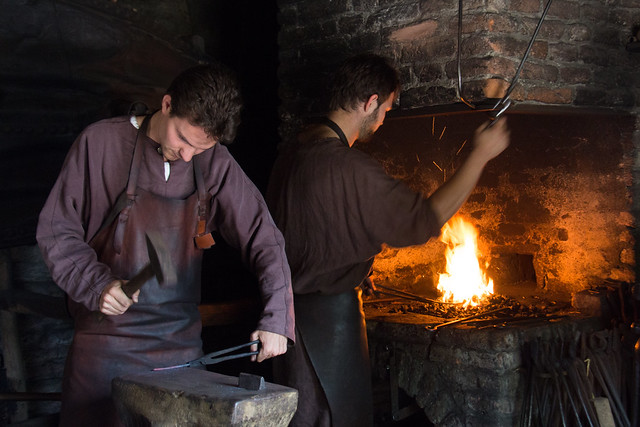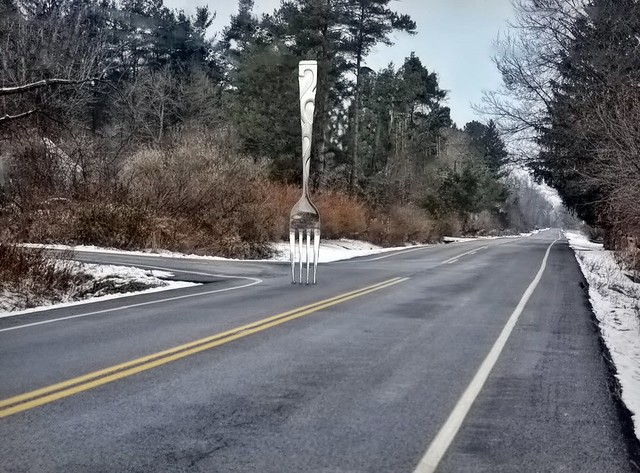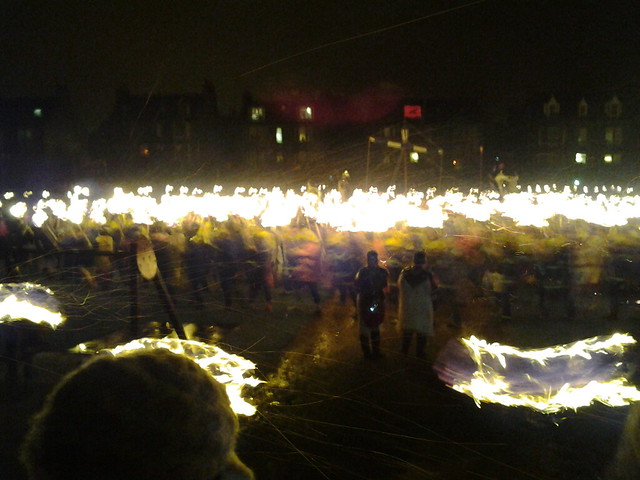Today we’re looking at the words for smiths and related people in Celtic languages.
| Proto-Celtic | *gobanns / *goban- = smith |
|---|---|
| Gaulish | Gobano = personal name Cobanno = name of a god |
| Old Irish (Goídelc) | gobae [ˈɡove] = smith goibnecht / gaibnecht = the craft or calling of a smith |
| Irish (Gaeilge) | gabha [ɡəu.ə/ɡəu/ɡoː] = smith gabha buí = goldsmith gabha dubh = backsmith, dipper, water ouzel gabha geal = silversmtih, whitesmith gabha óir = goldsmith gabha stáin = tinsmith |
| Scottish Gaelic (Gàidhlig) | gobha [go.ə] = (black)smith gobha-dubh = blacksmith gabha-geal = whitesmith gobha-ghunnachan = gunsmith gobha-ghlasan = locksmith |
| Manx (Gaelg) | gaaue = blacksmith, forger, smith gaauenys = smithcraft, smithery, smithywork gaauenaght = smithcraft gaaue airh = goldsmith gaaue argid = silversmith gaaue armyn = armourer gaaue cabbil = farrier gaaue glish = locksmith gaaue gunney = gunsmith gaaue stainney = tinsmith |
| Proto-Brythonic | *goβ = smith, blacksmith |
| Middle Welsh (Kymraec) | gof, gob, gou, geueil = smith, blacksmith |
| Welsh (Cymraeg) | gof [ɡoːv] = smith, blacksmith, ironsmith gof angorau = anchor-smtih gof afrau = harness-maker gof arain = silversmtih gof aur = goldsmith gof cloeau = locksmith gof du = blacksmtih gof ffrasau = maker of phrases gof pren = carpenter gof pres = brass-smith, copper-smith, tinker |
| Old Cornish | gof = smith |
| Cornish (Kernewek) | gov = blacksmith, smith govel = forge |
| Old Breton | gob, gobail = smith |
| Middle Breton | goff = smith |
| Breton (Brezhoneg) | gov [ˈɡow] = smith govel = forge, wire, forging, sharpening govelaj = forging goveliañ = to forge govelier = smith govelierezh = forging, sharpening |
Etymology: uncertain – possibly related to the Latin word faber (artisan, craftsman, maker, forger, smith), or from the Proto-Indo-European *gʷʰobʰ-/*gʰwobʰ- [source].
The surname McGowan comes from Mac Gabhainn (Irish) or Mac Gobhainn (Scottish Gaelic), both of which mean “son of the smith”. Other versions of this name are available, including MacGabhainn, O’Gowan, McGavin, McGowin and McCowan [source].
Words marked with a * are reconstructions.
Sources: Wiktionary, Am Faclair Beag, Online Manx Dictionary, Teanglann.ie, eDIL – Electronic Dictionary of the Irish Language, In Dúil Bélrai English – Old Irish glossary, Geiriadur Prifysgol Cymru, Gerlyver Kernewek, Gerlyvyr Cernewec, Dictionaire Favereau, TermOfis, Le dictionnaire diachronique du breton, Geriafurch, English – ProtoCeltic WordList (PDF), Etymological Dictionary Of Proto Celtic












